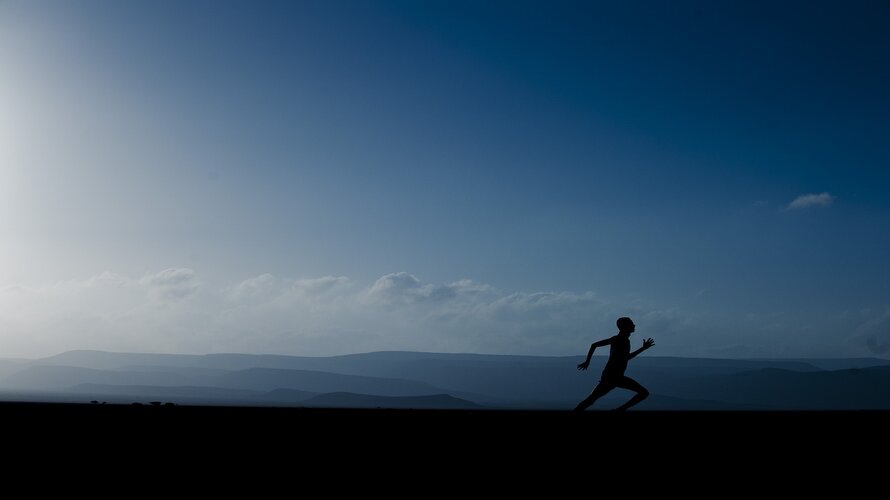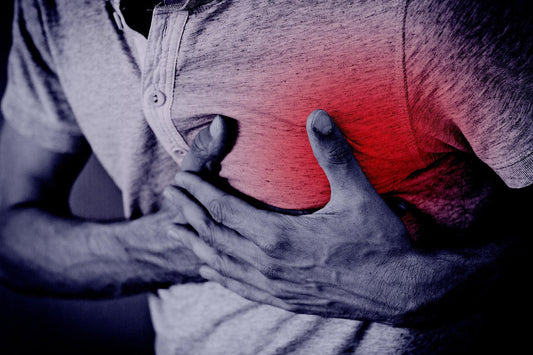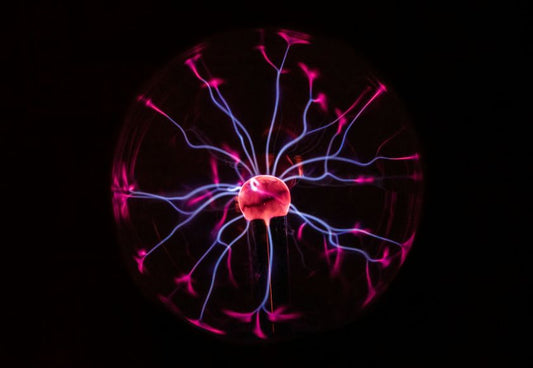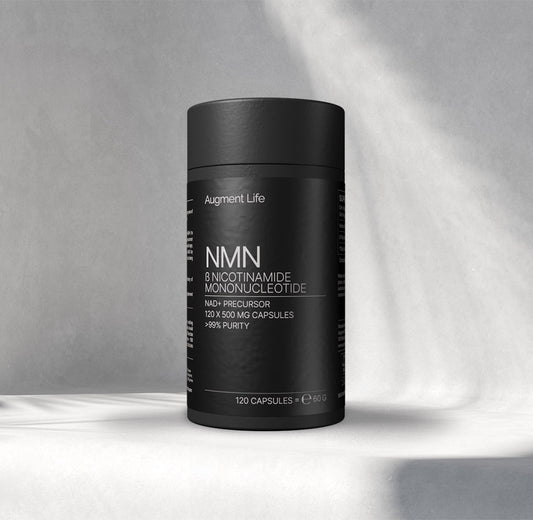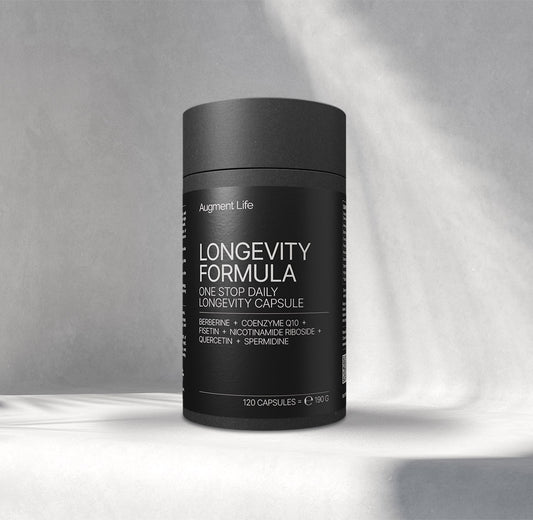Resveratrol is an intriguing anti-aging supplement and a strong antioxidant. It offers us many scientifically proven health benefits, like protection from oxidative stress, lowering of blood pressure and fat, and brain protection. However, for a while now, there have been speculations about resveratrol negatively affecting the positive effects of exercise.
So how does resveratrol (and other antioxidants) affect exercise? Are the positive effects of exercise cancelled on the days that you work out and take resveratrol? Keep reading and find out!
The role of antioxidants in the body
Before we jump into the vast world of our body's physiological processes and exercise, we should quickly cover the role that antioxidants play in them.
We consider any molecules that can neutralize dangerous free radicals to be an antioxidant (1). Without complicating it too much, we'll say that free radicals are unstable molecules with missing electrons that can oxidize in our bodies and cause damage to DNA, proteins, and lipids. They come from:
- metabolic processes,
- air and water pollution,
- cigarette smoke,
- radiation,
- poor diet.
On the other hand, antioxidants have "extra" electrons they can donate to free radicals and stabilize them. This also means that they can negate the bad effects of free radicals and the oxidative stress they produce in the body. Unfortunately, the story is not so black and white, and free radicals do have some important roles in the body. For example, during exercise when you break and rebuild muscle, which we will explain later.
However, when there are too many free radicals, there will be too much of the oxidative stress in the body. As many of us have already heard, this can cause:
- inflammation,
- aging,
- the development of cardiovascular, neurodegenerative, metabolic and cancerous diseases.
This is precisely why we want more antioxidants in our bodies, especially when they're potent, scientifically proven, and in the form of supplements.
The role of oxidative stress during exercise
Why would we ever need oxidative stress if we're constantly hearing that we should fight it? Well, free radicals do have some important roles in our bodies and removing them completely would stop some crucial metabolic processes.
For example, during exercise, the body generates free radicals and reactive oxygen species (2), which trigger beneficial processes like:
- Muscle growth and repair,
- Increased energy production,
- Improved insulin sensitivity,
- Cardiovascular adaptations such as improved blood flow and reduced blood pressure.
You need these smaller levels of oxidative stress to be able to gain anything from exercise. Moderate levels of oxidative stress from exercise signal the body to adapt and become stronger or more efficient. Too much of antioxidant supplementation can neutralize too much of this oxidative stress, which might blunt these signaling processes.
Scientific studies on resveratrol and exercising
Some studies suggest that taking resveratrol on the day of exercise can negatively impact exercise, particularly adaptations in cardiovascular health and muscle strength.
For example, one study in older inactive men found that taking 250 mg of resveratrol daily for 8 weeks during an exercise program reduced the positive effects of exercise on improvements in blood pressure and cholesterol levels (3). This study was done in 2013 and caused quite a commotion in the anti-aging field back then.
However, not all studies show the same. Some studies have found no negative impact or even slight improvements in muscle recovery and mitochondrial function when resveratrol was taken in conjunction with exercise.
For example, a 2021 study done on older individuals with limited mobility showed that taking 500 or 1000 mg of resveratrol per day helped them improve skeletal muscle function (4).
In 2014, the London marathon took place with many athletes being a part of the resveratrol supplementation study. They took 600 mg of resveratrol per day and had no difference in muscle soreness or the inflammatory response after running. They might have wanted to prove something else, but they proved resveratrol doesn't affect muscle repair in a way (5).
Similary to this, another 2014 study showed that taking 150 mg of resveratrol per day for four weeks did not change performance adaptation and muscle function response to low-dose high intensity exercise (6). Resveratrol didn't make exercise benefits better, but it did not diminish them as well!
One more 2014 study showed that resveratrol supplementation (500 mg in the first week and increased to 1000 mg for the other 3 weeks) did not change exercise duration and aerobic capacity in 13 healthy adult and inactive volunteers (7).
What's the conclusion then? We don't know whether resveratrol impacts exercise in absolutely every case. These effect might depend heavily on the type of exercise, age, gender, time of taking the supplements, body weight and health status, etc. So far, only one study showed that resveratrol should not be taken while exercising.
Do all antioxidants reduce the effects of exercise?
Some other antioxidants seem to blunt the effects of exercise in a similar way like resveratrol. Those are vitamins C and E. Research on young men shows that high doses of vitamin C (1,000 mg/day or more) and vitamin E (400 IU/day or more) can reduce improvements in insulin sensitivity and endurance capacity after endurance training. The results were collected during an 8-week endurance training program (8). One more study done on young men proved the same (9).
There are also several antioxidants that show no negative effects when taken while exercising (10):
- Curcumin: supports recovery from exercise without inhibiting adaptations,
- Quercetin: research suggests it may enhance endurance capacity and recovery rather than reduce exercise benefits,
- Coenzyme Q10: appears to improve exercise efficiency, especially in people with low baseline levels, without interfering with training adaptations.
- Green tea extract: Antioxidants from green tea improve exercise recovery, reduce muscle damage, and enhance performance, especially in endurance sports, with no clear evidence of nulling exercise benefits.
You can find all these antioxidants in the form of supplements in our web shop, simply by clicking on them.
How to take resveratrol and other antioxidants and still benefit from exercise?
If you're not sure when to exercise and still take resveratrol, you might consider several factors. First of all, you can avoid taking higher doses of resveratrol (> 250 mg), immediately before or after exercise. Time your resveratrol intake several hours apart from training.
Also, this might be more important to you if you train for endurance instead of strength. Usually, endurance training is more affected by resveratrol.
Learn more about resveratrol from our articles:
- Why Is Resveratrol Important?
- Where Does Resveratrol Come From?
- How Much Trans-Resveratrol Should I Take?
- Does Resveratrol Affect Memory Performance and Hippocampus Functional Connectivity in Aging?
- What Is the Difference Between Resveratrol and Trans-Resveratrol?
Literature sources:
- Salehi B, Martorell M, Arbiser JL, Sureda A, Martins N, Maurya PK, Sharifi-Rad M, Kumar P, Sharifi-Rad J. Antioxidants: Positive or Negative Actors? Biomolecules. 2018 Oct 25;8(4):124. doi: 10.3390/biom8040124. PMID: 30366441; PMCID: PMC6316255.
- Powers SK, Deminice R, Ozdemir M, Yoshihara T, Bomkamp MP, Hyatt H. Exercise-induced oxidative stress: Friend or foe? J Sport Health Sci. 2020 Sep;9(5):415-425. doi: 10.1016/j.jshs.2020.04.001. Epub 2020 May 4. PMID: 32380253; PMCID: PMC7498668.
- Gliemann L, Schmidt JF, Olesen J, Biensø RS, Peronard SL, Grandjean SU, Mortensen SP, Nyberg M, Bangsbo J, Pilegaard H, Hellsten Y. Resveratrol blunts the positive effects of exercise training on cardiovascular health in aged men. J Physiol. 2013 Oct 15;591(20):5047-59. doi: 10.1113/jphysiol.2013.258061. Epub 2013 Jul 22. PMID: 23878368; PMCID: PMC3810808.
- Harper SA, Bassler JR, Peramsetty S, Yang Y, Roberts LM, Drummer D, Mankowski RT, Leeuwenburgh C, Ricart K, Patel RP, Bamman MM, Anton SD, Jaeger BC, Buford TW. Resveratrol and exercise combined to treat functional limitations in late life: A pilot randomized controlled trial. Exp Gerontol. 2021 Jan;143:111111. doi: 10.1016/j.exger.2020.111111. Epub 2020 Oct 15. PMID: 33068691; PMCID: PMC7855904.
- Laupheimer MW, Perry M, Benton S, Malliaras P, Maffulli N. Resveratrol exerts no effect on inflammatory response and delayed onset muscle soreness after a marathon in male athletes.: A randomised, double-blind, placebo-controlled pilot feasibility study. Transl Med UniSa. 2014 Apr 8;10:38-42. PMID: 25147765; PMCID: PMC4140428.
- Scribbans TD, Ma JK, Edgett BA, Vorobej KA, Mitchell AS, Zelt JG, Simpson CA, Quadrilatero J, Gurd BJ. Resveratrol supplementation does not augment performance adaptations or fibre-type-specific responses to high-intensity interval training in humans. Appl Physiol Nutr Metab. 2014 Nov;39(11):1305-13. doi: 10.1139/apnm-2014-0070. Epub 2014 Jul 23. PMID: 25211703.
- Voduc N, la Porte C, Tessier C, Mallick R, Cameron DW. Effect of resveratrol on exercise capacity: a randomized placebo-controlled crossover pilot study. Appl Physiol Nutr Metab. 2014 Oct;39(10):1183-7. doi: 10.1139/apnm-2013-0547. Epub 2014 Apr 30. PMID: 25051174.
- Paulsen G, Cumming KT, Holden G, Hallén J, Rønnestad BR, Sveen O, Skaug A, Paur I, Bastani NE, Østgaard HN, Buer C, Midttun M, Freuchen F, Wiig H, Ulseth ET, Garthe I, Blomhoff R, Benestad HB, Raastad T. Vitamin C and E supplementation hampers cellular adaptation to endurance training in humans: a double-blind, randomised, controlled trial. J Physiol. 2014 Apr 15;592(8):1887-901. doi: 10.1113/jphysiol.2013.267419. Epub 2014 Feb 3. PMID: 24492839; PMCID: PMC4001759.
- Ristow M, Zarse K, Oberbach A, Klöting N, Birringer M, Kiehntopf M, Stumvoll M, Kahn CR, Blüher M. Antioxidants prevent health-promoting effects of physical exercise in humans. Proc Natl Acad Sci U S A. 2009 May 26;106(21):8665-70. doi: 10.1073/pnas.0903485106. Epub 2009 May 11. PMID: 19433800; PMCID: PMC2680430.
- Clemente-Suárez VJ, Bustamante-Sanchez Á, Mielgo-Ayuso J, Martínez-Guardado I, Martín-Rodríguez A, Tornero-Aguilera JF. Antioxidants and Sports Performance. Nutrients. 2023 May 18;15(10):2371. doi: 10.3390/nu15102371. PMID: 37242253; PMCID: PMC10220679.

